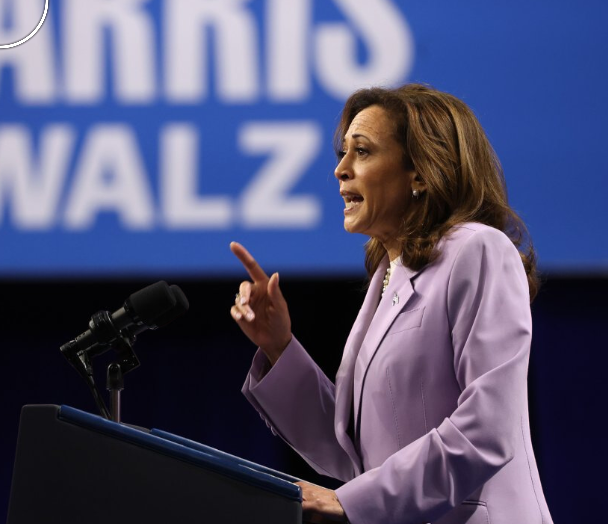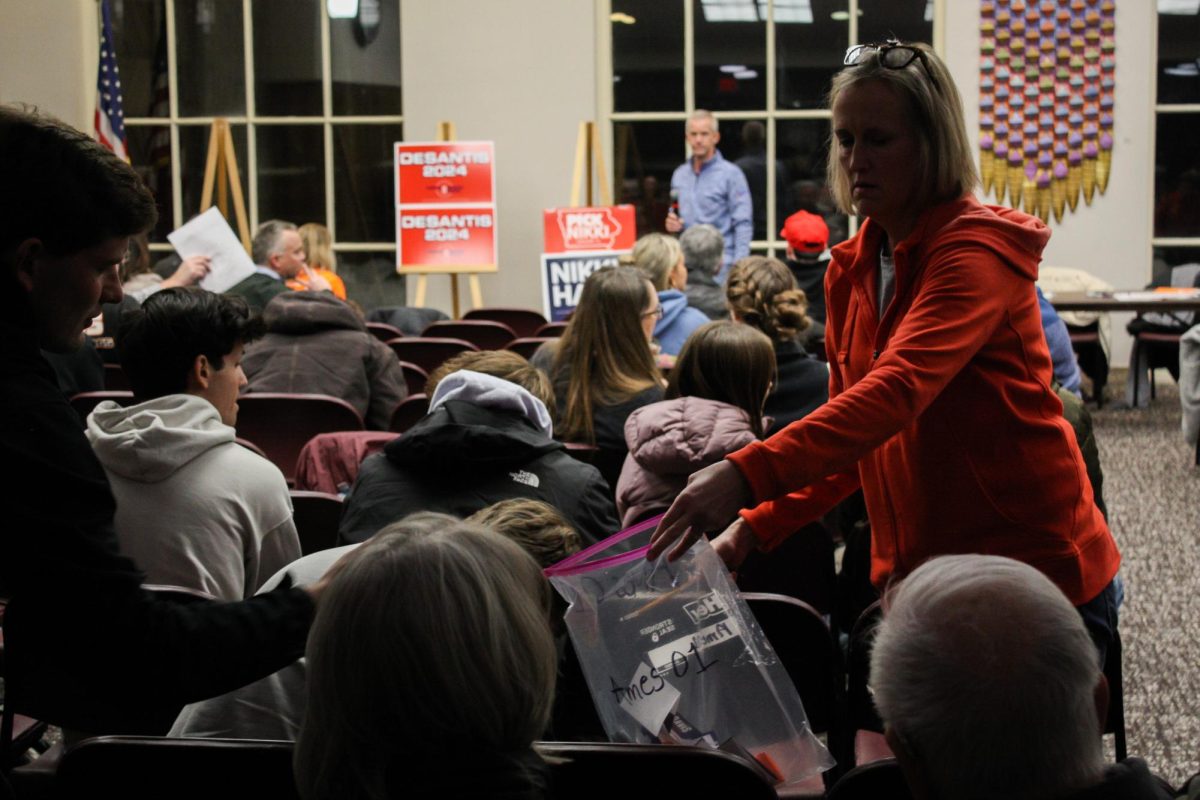In frigid temperatures on Monday, January 15, Iowans showed up to local caucus centers, paving the way for a decisive Trump victory.
The turnout, largely due to the cold, was the lowest Iowa had seen in years. 110,000 voters participated in the caucuses, just under 15% of Iowa’s 752,000 registered Republicans.
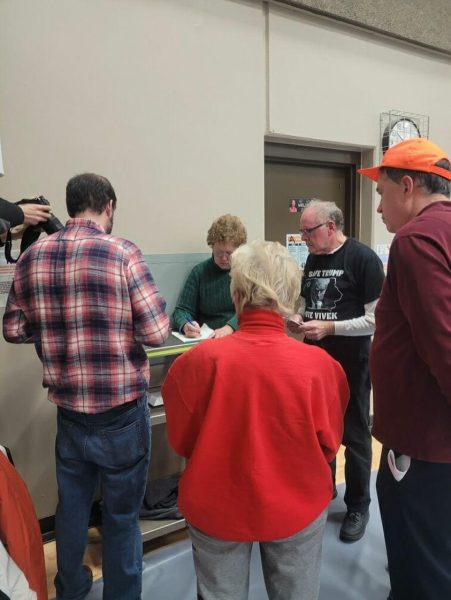
Contrary to the majority of Iowa’s support for Donald Trump, voters in Ames, a city that tends to be more liberal, leaned away from Trump and towards younger, more moderate candidates. At caucus location Ames 09 Trump won narrowly, beating Haley and DeSantis only two by votes. At location Ames 01, where Trump received only 10 votes, both Haley and Ramaswamy received strong support.
Trump’s criminal trials, which have doubled as fuel for his campaign in the past couple of months, concerned some of his supporters in Ames.
“I don’t like to think about [Trump’s criminal trials]. Let’s pray to God that he doesn’t get indicted,” said a supporter, who preferred to remain anonymous.
The former President’s agenda was still popular among his supporters, particularly his decisions on the border and regarding reproductive rights. However, for most voters in Ames, age and Trump’s inability to appeal to a more moderate base pushed them in the direction of candidates such as Haley and DeSantis.
“Age is an issue. We need a candidate who can work with all people and can appeal to young voters,” said Paul Castleberry, who had struggled to decide between DeSantis and Haley. For Castleberry, it was critical that the Republican party move in a more moderate direction. Ultimately, he chose to support DeSantis.
DeSantis, who narrowly won the race for second place, was preferred for his stance on education. His harsh take on “wokeness” in classrooms was a deciding factor for many of his supporters.
“I think age appropriateness is the most important thing. You should be able to notify parents if a five year old is asking about gender identity,” said a DeSantis supporter who asked to remain anonymous.
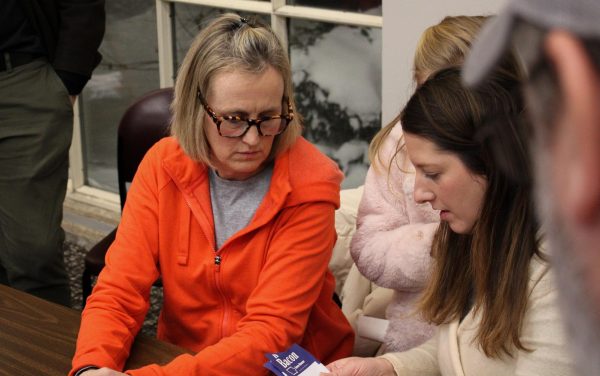
It was Haley, however, who was able to appeal to a more moderate base, including swing voters. Her supporters admired her uncompromising foreign policy, honed during her time as a former US ambassador to the United Nations.
“The Middle East is my biggest concern at the moment, and I’m unhappy with how the current administration is handling the situation. I think Haley would be a good change,” said Tom Walsh. Walsh is an independent who voted for Biden in the 2020 election.
“I tend to lean more left on social issues like reproductive rights and book banning. I really support Obamacare and Build Back Better, but I worry about the debt,” continued Walsh.
Voters also believed that Haley would offer a different perspective compared to previous Republican nominees.
“I think a woman-leader would be good for our country,” said Jean Dirkes, although she is unsure if Haley is the strongest candidate to face Biden.
Ramaswamy, who dropped out a mere two-and-a-half hours after Trump’s victory was announced and was polled at 8% prior to the caucus, still had an optimistic base of supporters. Primarily, he appealed to former Trump supporters who were concerned with Trump’s criminal record.
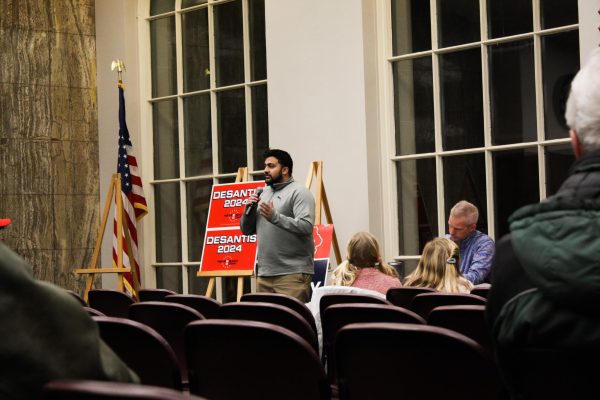
“Trump won’t be allowed near the White House again,” said Dan Runyon, who voted for Ramaswamy. “His inability to apologize or say he made a mistake is a problem for me.”

